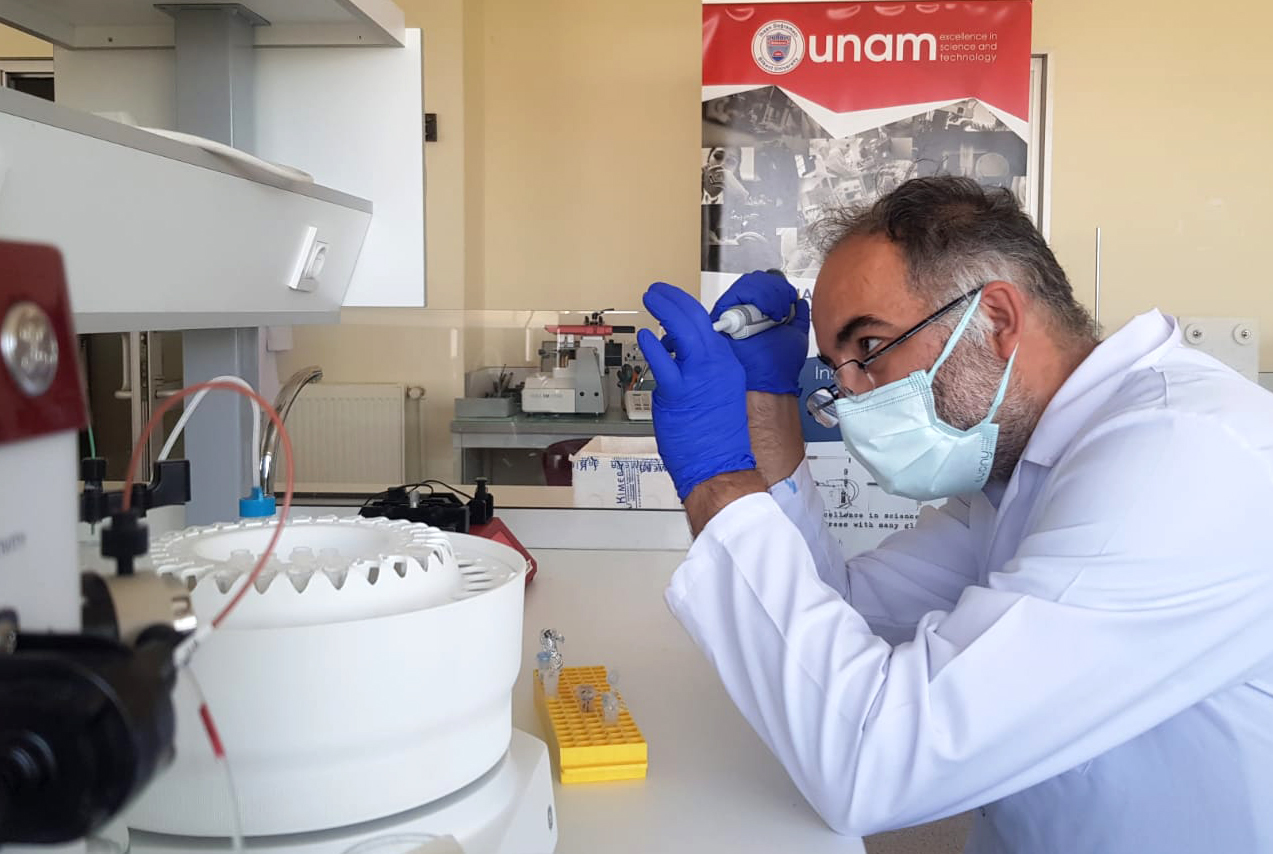A nasal spray containing a protein that prevents coronavirus from entering the cell has been developed at the National Nanotechnology Research Center (UNAM) at Bilkent University in cooperation with Ankara and Hacettepe universities, under the leadership of Asst. Prof. Urartu Şeker of UNAM.
 With preclinical studies having been completed successfully, investigation of the spray will continue with clinical studies on volunteers after approval from the Ministry of Health.
With preclinical studies having been completed successfully, investigation of the spray will continue with clinical studies on volunteers after approval from the Ministry of Health.
Griffthsin, an antiviral protein derived from a red alga species, was obtained via the recombinant DNA method, which involves the use of genetic engineering technology to cut DNA molecules obtained from different biological species and combine the diverse fragments. It was found that the protein, when sprayed into the nasal cavity, prevented the virus from entering the cell.
Positive results were obtained in preclinical test studies of the drug. In the studies, the production and design of the drug were conducted at UNAM, animal experiments at the Ankara University Faculty of Veterinary Medicine, and examination of the histological changes in the cell and viral replication in different organs at Hacettepe University. Application for the phase study, which will allow the drug to be tested on humans, is to be made in the coming days.
When administered via the nose in the first stage of the disease, the drug enables the body to destroy the virus after a period of time as a result of the virus not being able to enter cells and multiply. It is intended that it will be effective against multiple variants of the virus.
Having been proven effective against coronavirus in animal studies, if all goes well the spray is expected to be approved for use in patients as of December of this year, after further studies have been completed and the necessary permits obtained.